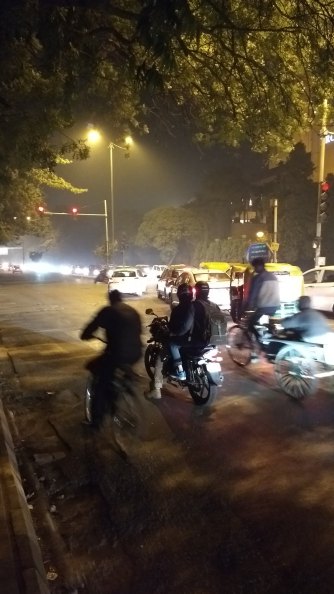
Reading some posts written by one of my fellow international development experts, I caught a point he was mentioning which is called the triangle-capacity model. Each angle nominates as Region, Sector and Function;
Region
/ \
Sector — Function
Region includes the insight for a certain territory; language, culture, people and history. Sector indicates a certain industry; education, health, energy, manufacturing and etc. Function includes a division that any organisation performs; audit, financing, management, sales/marketing, legal and etc. The wider this triangle is, the wider one’s capacity represents. The form of the triangle determines the shape of one’s capacity. It’s quite hard to be outstanding in all three axis, so the best strategy is to seize the excellence in two whichever axis, and learn how to coordinate with other experts to compensate the other axis. This gives the very explanation why diversity is important in an organisation. The more diverse are members, the bigger the organisational capacity becomes, as the triangle happens to be stretch out to include more angles.
This model analysis is quite revealing when one attempts to measure one’s capacity. As well, it helped me to reconsider what is my strength and weakness in search of job opening in Paris. Also, this analysis permits to have three or five years plan of how to broaden the capacity, and in which form. My current triangle-capacity model analysis can be described as;
Spanish/Korean
/ \
Development – Management
My region includes Latin America and Asia where I communicate with Spanish and Korean. My sector is Development field, broadly in public and private investment. My function would be described as investigation and project management.
Yet ambiguity lays when mentioning the specific sector of development such as energy or habitat, or specific regional condition like certain country, or specific function within project such as cost management or risk management. This speciality gives professionalism, but at the same time makes the triangle shrunk: maybe this is the reason why the market becomes relatively bigger for professionals since their triangle can fit anywhere. On the contrary, the anterior post suggests to enlarge the triangle as one’s capacity. If one’s triangle exceeds the one’s organisation, it is time for him/her to leave the organisation for further mastery or for one’s own business, as the confidence would be permitted by the capacity.
The difficulty that lays for me searching a job in Paris comes from two different elements then: one is my underestimated capacity and the other is the lack of information. My underestimated capacity means that I had worked in Latin American environment not in European one, in which for example, in the United States and in some countries in Laitn America I would have better chance to be hired because they need a coordinator who is able to communicate in three different languages. I got some job offers in the United States in L.A. and in Washington D.C. to coordinate investment from Korea to Latin American continent, but yet I wasn’t the one they were searching or I told them to confirm if they can wait for me later for March since I’m still looking for an opportunity to stay in Paris. In the meanwhile, some jobs I applied in Paris have replied that I need to be fluent in french or I’m not the profile they are looking for. The lack of information means that surely there would be an opportunity for me in Paris since this city presents an enormous-size of labour market, yet due to my information barriers I cannot access certain job offers that deal to sponsor local work authorisation.
It got me interested then, the coordination between migration policy and labour market policy for emplyment. Especially in France where there are many immigrants from African and Arabic countries, how policies are made and coordinated to absorb these human capitals into productivity? Does the local work authorisation for non-Europeans work as a filter for labour market in France? How could the level of mobilisation of labour be measured in Europe? And what kind of sector and function training system has been set to fill the vacancy and to redirect the traffic from overloaded fields?
Yet for this personal case, I realised later that my capacity triangle is suitable for job searching in Paris as it is, since my capacity triangle can overlap toward Spanish or Korean business field which contributes the enlargement of an organisation’s triangle as a whole. As mentioned before, this is why diversity is important in economic and environmental credit crunch, for it is essential for innovative thinking and problem solving. After having received some advices about my CV and job searching in Paris from a strategy coordinator in recruitment, I built more confidence in the process and already updated my CV as was advised, putting action verbs and underlying main achievement not job description on professional experience part. Maybe also I need to consider to apply for more broaden regions such as Brussels or Geneva, which are around Paris. I was also advised to look for connection since almost 70% job are obtained by connections rather than by open recruitment process. In the meanwhile, what I can do is to assure to sale my capacity triangle to fit in any demand from some organisations I’d work.
Share this:




